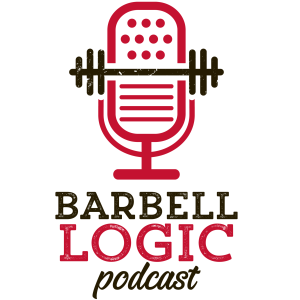
The coaching transition can be hard, as you have to budget time, money, or both with a steep learning curve & avoid potential pitfalls. Niki & CJ help you learn how to make the coaching transition to become a good coach.
Also, learn the correct pronunciation of CJ's last name!
Coaching Transition - Let's GoSo, you want to be a coach!? Awesome. You'll have to move from your current non-coaching state & bring coaching into actuality.
Of course, there's the leap of faith method, where you quit everything, metaphorically burn all your ships, and decide you'll be a coach one way or another.
Let's try another path, a more deliberate path, where you learn from the wisdom and mistakes of others.
Even if coaching become your primary means of income - you find yourself coaching at a big box gym or CrossFit gym, you have to ensure you coach, learn, and avoid burnout.
If you're in this position, we can't recommend enough our (completely free) Coaching Kickstarter eBook. Check it out!
Avoiding Pitfalls During Your Coaching TransitionWhatever path you follow, you must coach. Coach your spouse, your friends, your mom, your kids. Just coach. You need the reps, just as someone who wants to lift needs to get started - even if they have a 1" bar with concrete plates, no lifting shoes or belt, and are searching correct form during the workout. Begin.
You need a deliberate learning method. This not only includes the basic academic knowledge - anatomy, physiology, principles of programming, physics - but also a way to reflect on and learn from every coaching session.
Just as a novice may not be all that strong but can enjoy the rapid growth of a linear progression, a beginner coach can similar improve quickly through deliberate practice.
Ensure your business model is sustainable - and sustainability primarily means in terms of money and time.
CJ, for example, knew he had four months of runway before he or his wife would have to begin to earn additional money outside coaching.
Similarly, someone who keeps their main job and coaches in their free time will either need to put a time-limit on this practice or ensure that their combined main job and coaching job does not lead to burn out (too much time) or resentment (not charging clients enough).
A major pitfall is going professional too early. Example include buying or renting a huge gym space, getting a professionally-designed website, or purchasing some administrative or backend support when you only have a couple paying clients.
As you grow as a coach, a more professional website, a bigger space, and other marks of an established, professional coach will come - but don't do the coaching equivalent of buying a treadmill when you've never run a day in your life.
Start today, keep learning, know your coaching VIP, and - seriously - download that Coaching Kickstarter eBook.
Get your FIRST MONTH FREE on all strength and nutrition coaching plans. No discount code needed and includes a 10-day, no obligation trial. https://bit.ly/2MKeOoh
- Matt on Instagram
- Niki on Instagram
- Barbell Logic on Instagram
- Podcast Webpage
- Barbell Logic on Facebook
- Or email podcast@barbell-logic.com
More Episodes
 2021-06-14
2021-06-14
 2021-05-24
2021-05-24
 2021-05-17
2021-05-17
 2021-05-10
2021-05-10
 2021-04-26
2021-04-26
Create your
podcast in
minutes
- Full-featured podcast site
- Unlimited storage and bandwidth
- Comprehensive podcast stats
- Distribute to Apple Podcasts, Spotify, and more
- Make money with your podcast
It is Free
- Privacy Policy
- Cookie Policy
- Terms of Use
- Consent Preferences
- Copyright © 2015-2024 Podbean.com





